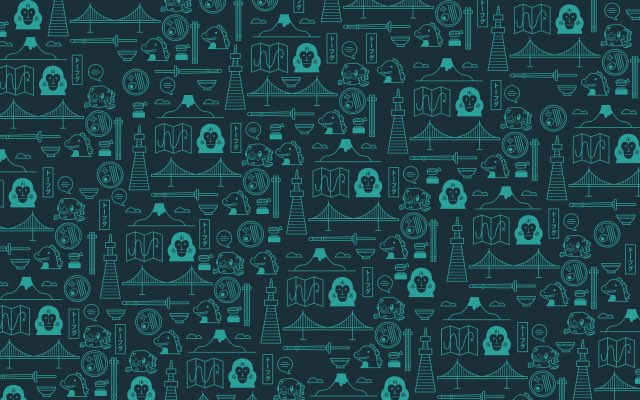Japan has had many different names in its time. We in America are lucky. We just have "America," "The United States," and "The United States Of America." I don't think we've really been called much else, at least not as an entire nation. Japan, on the other hand, has been called so many different things, not all of them particularly flattering. But, luckily for them they've had plenty of names to choose from, and for now it looks like most of the world is going to stick with Japan (even though Japan uses a different set of names to call themselves with). So what was "Japan" known as a long, long time ago? Who were these people thousands of years ago? Who were they even before time itself?? Let's find out.
Before Time Itself: Ōyashima, Giving Birth To Baby Japan Island Octuplets
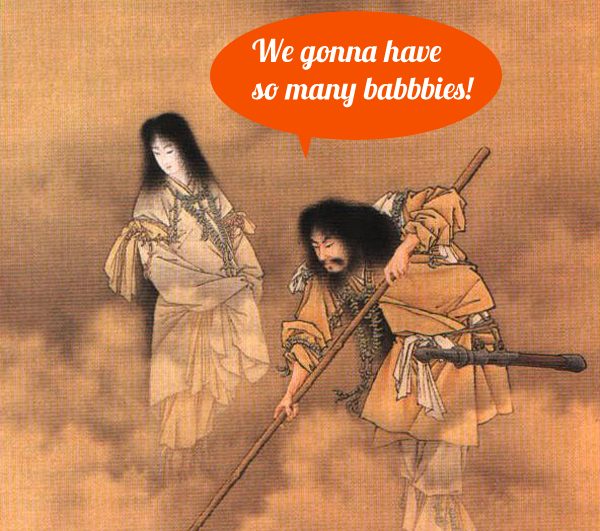
I'm going to skim over the details a bit here, but "Long, Long ago, in a galaxy that was actually our galaxy," the first Gods Kunitokotachi and Amenominakanushi (seriously, what's up with these long names?) created Izanagi and Izanami into existence and told them they were created for hard labor… the hard labor of creating the first land.
They were given a heavenly spear with fancy jewels which they used to churn the sea below (because the earth was just a bunch of water back then, probably almost as cool as the best movie ever, Waterworld). When they pulled the spear out, eight drops of salt water fell off of it and created Onogoroshima (self-forming island). They went and lived on it, hooked up (improperly, because the man is supposed to greet the lady first or some BS like that), had some babies (which were deformed), cast the babies out to sea (because they were deformed), re-did their wedding ceremony (correctly this time) and because everything went A-okay, Ōyashima 大八洲 was born.
And this (Ōyashima) also happened to be the first name for "Japan" (though there's a good chance this name was made up for "Japan" after Japan already had some other names, but we'll pretend for now, okay?).
Ōyashima means "Great Eight States" and it refers to the eight islands of Japan. These islands were known as: Awaji, Iyo (Shikoku), Oki, Tsukushi (Kyushu), Iki, Tsushima, Sado, and Yamato (Honshu). Yamato comes up again later, so pay attention. Some islands (like Hokkaido) aren't there, but that's probably because nobody really lived there (except the natives) when this creation myth was first conceived, so when they were making up this story they didn't include it. Sorry Hokkaido :(
So this is the name of Japan before anything existed. What about Japan after it started existing? Japan didn't have writing until around 500AD, when they got it from the Chinese, so we have to rely on non-Japanese sources to figure out the name of Japan before then.
0-300AD: The Nakoku Kingdom

During the Yayoi period of Japan around modern-day Fukuoka, the country of Nakoku existed. During this time, there were many groups in Japan. Not too much is known about the people in Japan at this time, but there's actually a record of the Nakoku (奴国, i.e. the "dude" or "slave" country… not sure how that makes any sense) in the form of an imperial seal given to them by the Chinese Emperor Guangwu in 57AD. In return, we know the Nankoku brought some New Years tribute back to China soon after, just like a real country would, because the Chinese wrote about this too.
Although the "Nakoku" doesn't really represent Japan as a whole very well, it's one of the first real, physical records of a name for Japan. Most other references to Japan are just references (on paper) and pretty ambiguous. The Nakoku must have been pretty hot stuff to get an imperial seal like that, though there's not much else to know about them, unfortunately.
The funniest bit is the writing on the seal itself. It says "King of the Japanese Country of Na Of Han" – I like how they throw in the "of Han" part in there, just to make sure they know the Han Dynasty considers the islands around China to be a part of China. Some things will never change, yeah?
121 AD: Wakoku, The Land Of The Submissive Dwarf People?
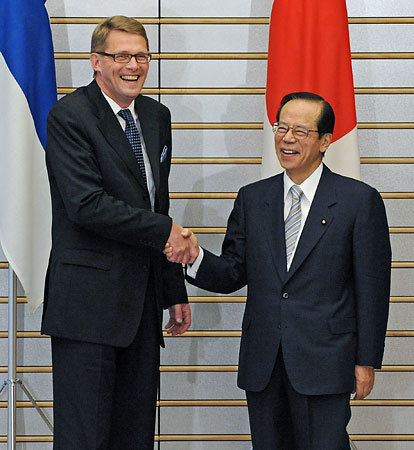
Japan and the rest of Asia aren't particularly known for their basketball players – perhaps that's because Japanese people aren't known to be very tall, at least not like the Western countries. But, it surprised me to find out that China used to call Japan the "Dwarf Country" – though the reasoning wasn't particularly sound.
During the Three Kingdoms Era in Japan, we get our first written glimpse at what Japan as a whole was called back in the day. In ancient Chinese texts, Japan was referred to as wakoku 倭国, where wa 倭 = (Japan) and koku 国 = (country). The interesting part of this is the wa 倭. This character was made up to refer to Japan and technically means "Japan." Despite this, the character itself is made up of individual pieces (or radicals, if you will) that give a slight connotation to the character, which created some controversy. Here's why:
The character 倭 is made up of three parts. They are:
イ = person radical
禾 = grain
女 = woman
So, there's this woman carrying grain, and it's being used to represent an entire group of people. Symbolically, it's thought this could mean a couple different things, though nobody's sure which one is the correct one (or maybe they're both correct).
- Submissive Peoples: The Japanese people are bent down like a woman carrying grain. People in Japan show respect by bowing down and showing obedience, at least that's how the kanji goes.
- Country of Dwarf People: Could also refer to their physical stature. This was definitely a derogatory way of thinking about things when you wrote "Japan," though we'll see Japan realize this much later on (way to be, China). Although I'm guessing this is just a case of jackasses being jackasses, one theory is that this is referring to a legendary country south of Japan, 侏儒國 (Dwarf Country), that's possibly Okinawa. Obviously this is a case of "all East-of-China-island-people people look the same" syndrome). Nah, nah, it's cool. I totally have a friend who's an East-of-China-island-person, so it's not racist…
The actual pronunciation part of wakoku 倭国 is also up for debate, though the main theory is that the "wa" sound comes from waga 我が and ware 我 which were the two ways Japanese people referred to themselves (i.e. they were the words for "I"). So, maybe some Chinese guy heard them speaking Japanese, and kept hearing the "wa" part over and over and just thought "meh, let's just call them wa, they can't seem to stop saying it." At least, that's how I like to think it happened… Doesn't seem like a lot of thought has gone into anything so far…
499 AD: Fusou, The Mysterious Land To The East
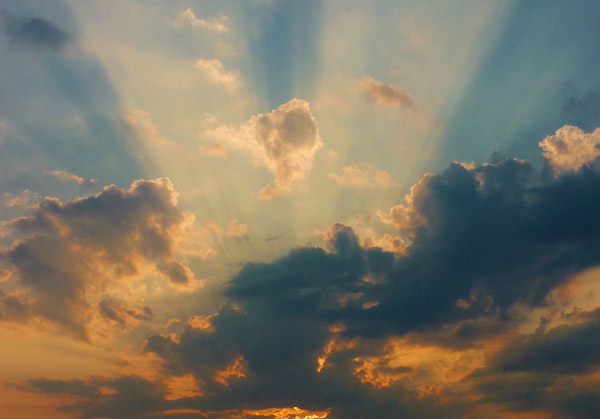
Several Chinese texts of this era also refer to Fusang or Fousang (read Fusou in Japanese), a mysterious land in the east (which, spoiler, is probably Japan). Buddhist missionary Hui Shen, for example, talked about a land he went to by ship 20,000 Chinese li (which is a measurement that has changed over and over throughout history, so I'm not even going to try) to the east. Some people have said this was America (and that China actually discovered America first!), though more likely this was just another name for Japan.
Now, even though China knew that Japan existed, it was still a pretty wild and barbaric place. China didn't know a whole lot about that area, and it was still a mystery. That's why we'll see multiple names for Japan during the same times, including ones that are super fantastical like this one.
In Chinese mythology, this "Fusang" is a divine tree that exists in the East where the sun rises (which is about as findable as gold at the end of a rainbow). This at least shows that Fusang, wherever it is (probably in Japan) is in the east. It also helps that this legend refers to the sunrise, because as you'll find out later, Japan's name all about the origin of the sun these days (Land of the Rising Sun, anyone?).
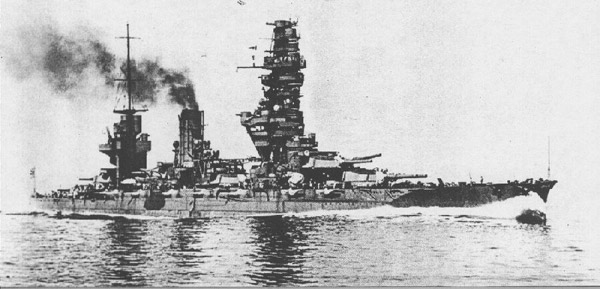
Even to this day, you'll see some references to Fusou in Japan, usually having to do with some pretty nationalistic things. For example, during WWII (which was arguably a pretty nationalistic time for Japan) a couple ships had the Fusou name including the Ironclad Fusou and the Battleship Fusou. Pretty Japanese sounding to me (either that, or their secret mission was to look for a mystical tree where the sun rises).
250-538AD: Yamato
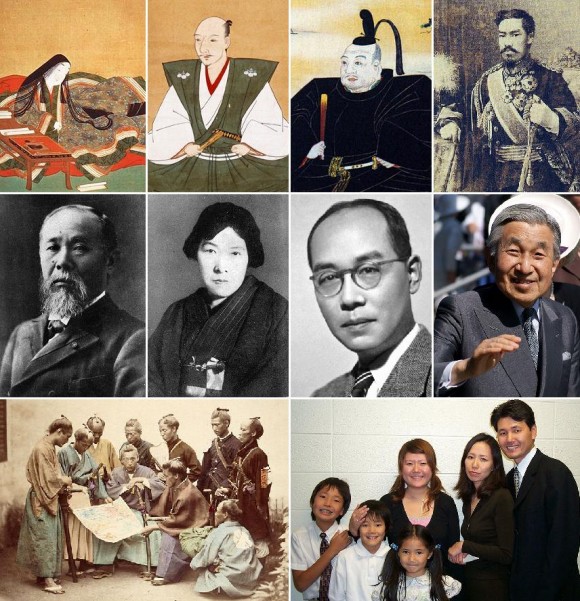
At this point in history, we start running into more familiar names for Japan. The "Yamato" refers to a group of people who settled down in Japan and became the original "ethnic Japanese" people (not to be confused with the natives, like the Jomon, Ainu, and so on who were there much earlier). They're basically the Japanese people you see today. These people were around before the Yamato Period (250 AD to 710AD), but it was only around 300AD when they started getting themselves together as more of a country. They somehow got ahead of all the other tribes and just dominated.
Now, one thing you'll maybe notice is the name "Yamato." Remember the eight islands that Izanagi and Izanami made with their fancy water-mixing spear? The last one was named Yamato, and it refers to current day Honshu (that's the big main island). At this time in history, the Yamato probably controlled more of Japan than anyone else did before it, which makes their "Japan" the most Japanese of them all (at least until the near future). They had some relations with China and were much more country like compared to every other kingdom or country that came before it. Things are starting to look more like "Japan."
Now, even though they called themselves the Yamato (and not Wakoku, which you probably remember kind of means dwarf/submissive people), they kept the same kanji they had before. So, wa 倭 became "Yamato" even though this character isn't supposed to be read this way (i.e. they just decided to make up a new reading for that character). The character itself was the same, though, so nothing changed in the suggested meaning of it, but at least they had their own name and not one given to them by the Chinese. Now we're getting somewhere!
The interesting thing about the name Yamato is that 1) it isn't the right pronunciation for the kanji it's made up of and 2) it may refer to an actual place that uses the correct kanji to go along with it. Some people think "Yamato" originally comes from 山戸 (mountain door), though I doubt we'll ever find out for sure. I wonder why they didn't just switch to the Mountain Door kanji? Perhaps they looked up to their Chinese neighbors too much to dare change it. At this time, China really was the boss, and you don't want to piss off the boss.
Perhaps if they just changed things slightly nobody would notice…?
538-710AD: The Dwarf People Country Becomes The Great Dwarf People Country
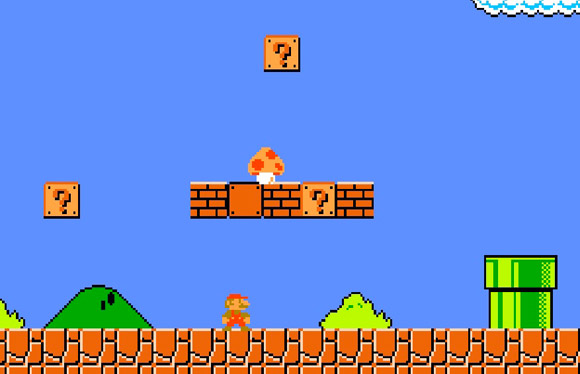
In the Asuka Period (which is the later part of the Yamato Period) someone came up with the rule of standardizing place names. Each place name had to have two kanji, but 倭 (Wa / Yamato) was only one character. Ruh roh. What's a country to do?
Instead of changing the possibly derogatory kanji when they had the chance they decided to add a 大 (big/great) character to the beginning of 倭 (Yamato/Wa) and rename the country 大倭 (great submissive dwarf people country). Now, these characters wouldn't normally be read like this, but I think they were on a roll making up new readings for 倭 (which went from "Wa" to "Yamato") and they decided that you'd read 大倭 as "Yamato." The reading makes no sense at all, but more power to them.
So, instead of being the "Submissive Country" or the "Dwarf People" country, they were now the "Great Submissive Country" or the "Great Dwarf People Country" or some combination of the two. Way to move up in the world, Japan. Way to move up.
Yamatai: The Chinese Version of Yamato?
At the same time as this, the Chinese were calling the Yamato the Yamatai… well, maybe they were. It's pretty hotly debated what went on during this period. A lot of people think that the Yamatai were just the Yamato, but the Chinese at the time had different pronunciations for things with all their different kingdoms and dialects. Some other people think that the Yamatai were a different group of Japanese also living in Japan at around the same time. I obviously have no idea who's right, but there's lots of evidence leaning towards Yamatai being different from Yamato.
What's interesting is that there were multiple other spellings of both Yamato and Yamatai from different (i.e. Japanese and Chinese sources), though 倭 was still standard until later. They were:
夜麻登 ("Yamato," from the Kojiki).
夜 (night) + 麻 (hemp) + 登 (rise)
耶麻騰 ("Yamato," from the Nihon Shoki)
耶 (sentence final particle) + 麻 (hemp) + 騰 (fly, gallop)
山跡 ("Yamato," from the Manyoushuu)
山 (mountain) + 跡 (track)
The Chinese sources come up with slightly different combinations for Yamatai:
邪馬臺 ("Yamatai," from Wei Zhi)
邪 (nasty) + 馬 (horse) + 臺 (platform, terrace)
邪馬台 ("Yamatai," from Hou Han Shu)
邪 (nasty) + 馬 (horse) + 台 (platform, terrace)
邪摩堆 ("Yamatai," from Sui Shu)
邪 (nasty) + 摩 (rub) + 堆 pile, heap)
Not sure if you noticed, but the Yamato better hope the Yamatai weren't the same people as them. The Chinese weren't particularly fond of whoever the Yamatai were (maybe the Yamatai was Japan… maybe not). Apparently the kanji used to spell the word Yamatai refer to the barbarian-ness of the people there. The thing is, Japan at this time was pretty barbarian-ish, at least compared to how it was later in history (where they start getting known as very refined and cultured), so I wouldn't doubt it.
On the other hand, this could have been a combination of the two (being separate and being the same). The Yamatai were an actual people slightly before the Yamato took off, ruled by the shaman Queen Himiko, who died in 248AD. That's right when the Yamato get started. Perhaps the Yamato come from the Yamatai, and it took a while for China to get the message (if they did at all). The two sound similar enough that China could have confused them as the same people, possibly because they actually were the same people, at least to a certain extent. Perhaps historians will figure this out someday.
While we're arguing whether or not these people are separate, one more thing to look at is the meanings of the kanji in the different versions of Yamato. I can't help but notice that there's references to hemp, which can grow in reeds. This is similar to another name Japan had (which is poorly documented, so I'm just making guesses here) which was Ashihara no Nakatsukuni (i.e. The middle country of reeds). This refers to the place in Japanese mythology between hell and heaven, though it eventually became a name for Japan. I wonder if the Yamato got the idea for the characters for their name from this, or if it's just a coincidence and boring old ateji.
Either way, the Yamato and the Yamatai were both "Japan" in one way or another – the main question is were they the same country? I'm not sure we'll ever know, so let's get onto more solid historical footing, again.
7th Century AD: The Land Of The Rising Sun
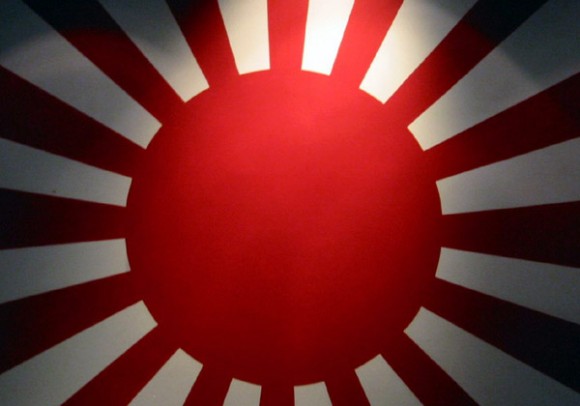
In the 7th Century, we start seeing more references to the "Land of the Rising Sun" which is essentially what the kanji that makes up the modern name for "Japan" means. Two texts bring this up, though they have different ideas on how it happened.
The first one (The Old Book Of Tang) said that a Japanese envoy disliked the name of his country (the one that made it seem like Japan was submissive and dwarfish) and so he had it changed to nippon 日本, which literally means "Sun Origin" (aka land of the rising sun).
The second text (The True Meaning Of Shiji, this one being Japanese) states in the 8th century that the Chinese Empress Wu Zetian ordered Japan to change their name to nippon 日本.
Either way, things started changing around here and the idea of the "Land of the Rising Sun" was put into people's minds. The name "Nippon" was born, and although it wouldn't gain total acceptance right away, we'll see later that this is one of the names used in Japan even to this day!
All I can say is at least it's not Wakoku. Speaking of which…
8th Century: Dwarfs In Exchange For Peace
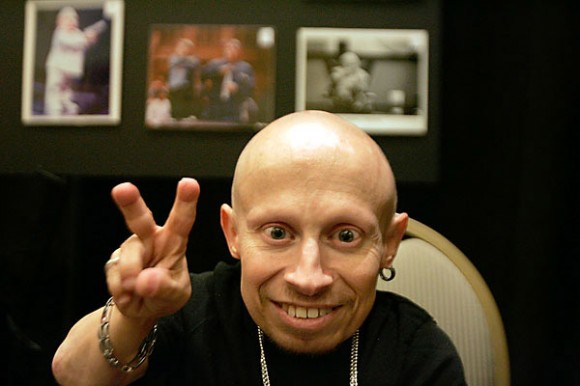
It wasn't until the 8th century that Japan decided that they didn't want the 倭 (dwarf/submissive Japan) kanji to represent their country. So, instead of this kanji with roots in little people and submissiveness, they went with wa 和 which means peace. Finally, China's 600 year long practical joke came to an end.
Of course, they changed 倭 to be pronounced "Yamato" already, so they stuck with that in 和 as well. They also kept the 大 (great) in there because places had to have two characters or else they were breaking the rules. So finally you see Japan go from Yamato 大倭 to Yamato 大和. Good times.
The kanji for peace (和) shows up in a lot of things even today in order to represent something Japanese (though it's pronounced "wa" like it's supposed to be, not Yamato). For example, the word for Japanese food is washoku 和食 (literally "peace food" but it means "Japanese food"). You'll see this everywhere, and it's just a bit of left-over from when Japan was called Yamato (and they had changed the character to peace).
So far we haven't seen anything that sounds like "Japan" yet though! Well, you're almost there – stick with me!
1577: Marcooooo! Polo! Marcoooooooo! Polo!

It wasn't until Marco Polo, famous Italian Explorer, that we started to see the modern name for Japan… which is… well… Japan! He never went to Japan (and some people say he faked his trip to China and a lot of other places) but he certainly was one of the first people to write about it (and get people to read it). When he did, he used the word "Cipangu" which is either Mandarin Chinese or Wu Chinese. The Wu Chinese name for Japan was Zeppen, which I think you can kind of see resembles the word "Japan." Add a slightly more "J" sound to the "Z," throw in a heavy Italian accent, and you'll be 90% of the way there.
On top of this, the Malay word for Japan was "Jepun," which is even closer to the modern version of the name. If the rumors are true, and he just faked a lot of his exploration using second hand info, he could have gotten the word Giapan from Portuguese traders in areas that speak Malay (They called Japan "Jepun").
Whatever happened, it's fairly obvious that the word "Japan" came from a couple of groups around Asia (but not from Japan itself, because Japan itself would be pretty closed off to foreigners at this point in history). This explains why the world doesn't call Japan "Nippon" or "Nihon" or "Yamato" or something like that – they had to use foreign names for Japan to come up with their own foreign name for Japan. Funny how things work out.
1867: The Empire Strikes Back
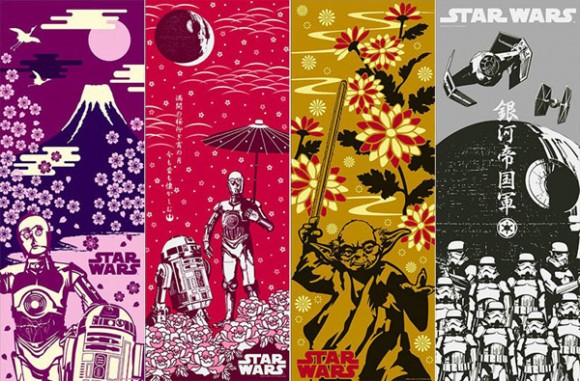
By this time Japan was hitting Japan its stride and calling itself 日本 (nippon or nihon). This is what Japan calls itself today (and we'll go over the difference between nihon and nippon in just a second). I'm not sure how the switch took place, but the nippon variation started around a thousands years before 1867, so it's definitely had time to gestate. Also, considering how militaristic Japan gets starting after the Meiji Restoration, I'd say the "peace" character isn't all that appropriate to represent their name.
There were some variations on nippon 日本 created here, though – The official name for Japan is actually 日本国 (Country of nihon/nippon). Between the Meiji Restoration and the end of World War II though, Japan called itself 大日本帝国 (Great Empire of Japan). Like I said, they were doing a lot of military stuff that their neighbors didn't appreciate.
After WWII, they couldn't be called the Great Empire Of Japan anymore, so they just switched back to Japan (at least in terms of the name non-Japanese use for Japan). It's actually one of the few nations to have no "long form" name, apparently, which is kind of cool. I like the simplicity.
Today: Japan vs. Nihon vs. Nippon
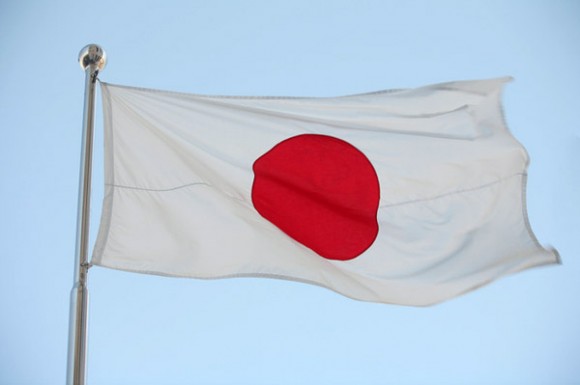
Of course, most of the world calls Japan "Japan" though occasionally you'll see some European variations. Even though the word for "Japan" in Japanese is "Nihon" or "Nippon" if you say "Japan" in Japan they'll know what you mean. It's good to know the name of your own country if everyone but you calls you something different.
The names "Nihon" and "Nippon" mean the same thing, and the kanji is the same too – the main difference is how they're generally used.
Nihon: Regular name for Japan
Nippon: More often used for "official" things, like money, stamps, banks, etc. Just sounds a bit more formal, perhaps sort of like the difference between saying "USA" and "United States of America." They mean the same thing, but the feeling is slightly (and only slightly) different.
So, if you've learned anything from this gigantic article, I hope it's the modern word for Japan. That's obviously the most important right now, unless you're a time traveler (if you are, please contact me, I'd love to visit a few times).
The Future Is A Scary Place
With all these name changes, who knows what Japan's name might end up being in the future. It's interesting looking back how fast the names switched around, though. It's not like any foreign powers really came in and took over during most of Japan's history (until modern history). Most of the changes seemed to be based on the cruel joke China played on them a long, long time ago. It took almost a thousand years to fix it, but they did, though they had to try quite a few times.
There's actually quite a few other names for Japan out there, but I just didn't include it in this article because they weren't prevalent or important enough, but it was super interesting learning and putting together the history of all the different names. I hope you enjoyed this article and learned something though! Perhaps we'll even be around for another name change in the future. Seems like every 300 years or so…? Here's to hoping.
